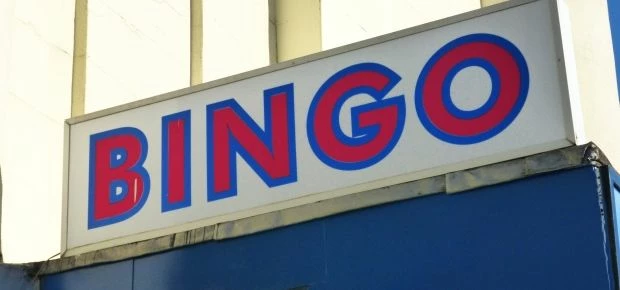
Partner Article
Britain’s bingo halls have a positive multichannel future, new research shows
Now, as in Italy in the 1500s, bingo brings together a unique combination of experiences – the thrill of the game itself, the allure of cash prizes, and the fun of playing with friends.
A new report, ‘The Fall & Rise of Bingo’, commissioned by bingo comparison site Two Little Fleas, tells the fascinating story of Britain’s turbulent love affair with bingo, from the birth of the commercial bingo hall in the 1960s to the recent growth of online and mobile gaming.
Written by high-street and digital-marketing expert Graham Soult, the study draws from historical research, interviews with key industry players and a series of absorbing bingo hall case studies – featuring venues in Sheffield, Newcastle and Darlington – to chart bingo’s changing fortunes.
“After years of relative decline, industry experts agree that the recent cut in bingo duty has given the future of the traditional bingo hall a big boost”, says Soult. “Meanwhile, online and mobile bingo has opened up the game to a new generation of players.”
Commercial bingo was only legalised in Britain in the 1960s, with the first bingo club opening on 3 January 1961. Back then, Mecca attracted 150,000 players a day to its bingo games, while bingo continued to ride high in the 1980s with the launch of the UK-wide National Bingo Game.
However, after the National Lottery began in 1994, the number of bingo clubs fell 21% between 1995 and 2000, while the UK ban on smoking in enclosed spaces proved a further threat to traditional bingo halls. In the last decade alone, the number of bingo clubs in Britain has dropped from nearly 600 to fewer than 400 today. Even in 2011, however, three million customers made 49 million visits to UK bingo clubs – demonstrating bingo’s continued importance to local economies and to people’s social lives.
As the use of traditional bingo halls has declined, bingo giants such as Mecca and Gala have used new platforms and technology to help grow online bingo. Mecca piloted Europe’s first fully-electronic bingo hall in Edinburgh – seeking to use technology to reinvigorate the physical bingo club – while Marie Curie Cancer Care is the first charity to run its own online bingo site, TicketyBooGames.com, with all net profits used to support its work.
A further reason for bingo halls struggling was that until July this year, their profits were taxed at 20%, compared to 15% for bookmakers and fixed-odds betting, and just 12% on the price of a lottery ticket. This made it harder for bingo halls to invest in the facilities and prizes that would help them compete.
The Boost Bingo campaign was launched in January this year, led by the Bingo Association, with the message that bingo duty should be cut from 20% to 15%, to relieve the industry’s “tax burden”. In March, Chancellor George Osborne announced in his Budget that taxes on bingo halls would be halved from 20% to 10%, “to protect jobs and protect communities” – even exceeding the cut to 15% that Boost Bingo had been campaigning for.
“The bingo industry experts who we spoke to were clear that it’s now up to club operators to keep delivering an improved bingo club experience – by investing in premises, increasing prizes, and continuing to innovate”, says Soult.
“What’s particularly fascinating is how this is linked to the transformation of the online space, as more players switch to handheld touch-screen devices like tablets due to the growth of mobile technology.
“It was actually quite notable how many echoes bingo has of the similar challenges I’m seeing all the time in retail – namely the growth of a ‘multichannel’ customer experience, and the need for physical venues, whether bingo clubs or shops, to find a new purpose that addresses consumers’ changing habits and offers something that is both enhanced by, and can’t be fully replicated, online.”
For the full story of ‘The Fall & Rise of Bingo’ see http://www.twolittlefleas.co.uk/fall-and-rise-of-bingo/
This was posted in Bdaily's Members' News section by Graham Soult .
Enjoy the read? Get Bdaily delivered.
Sign up to receive our popular morning National email for free.








 Restoring confidence for the economic road ahead
Restoring confidence for the economic road ahead
 Ready to scale? Buy-and-build offers opportunity
Ready to scale? Buy-and-build offers opportunity
 When will our regional economy grow?
When will our regional economy grow?
 Creating a thriving North East construction sector
Creating a thriving North East construction sector
 Why investors are still backing the North East
Why investors are still backing the North East
 Time to stop risking Britain’s family businesses
Time to stop risking Britain’s family businesses
 A year of growth, collaboration and impact
A year of growth, collaboration and impact
 2000 reasons for North East business positivity
2000 reasons for North East business positivity
 How to make your growth strategy deliver in 2026
How to make your growth strategy deliver in 2026
 Powering a new wave of regional screen indies
Powering a new wave of regional screen indies
 A new year and a new outlook for property scene
A new year and a new outlook for property scene
 Zero per cent - but maximum brand exposure
Zero per cent - but maximum brand exposure